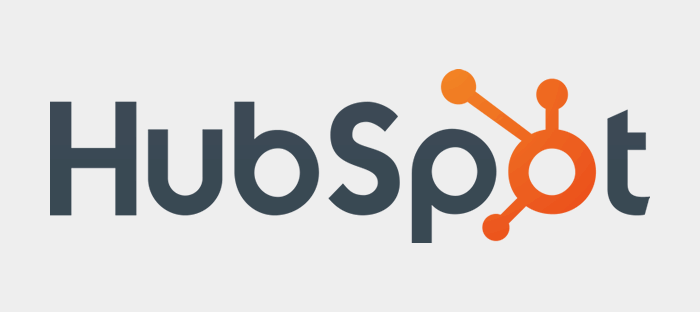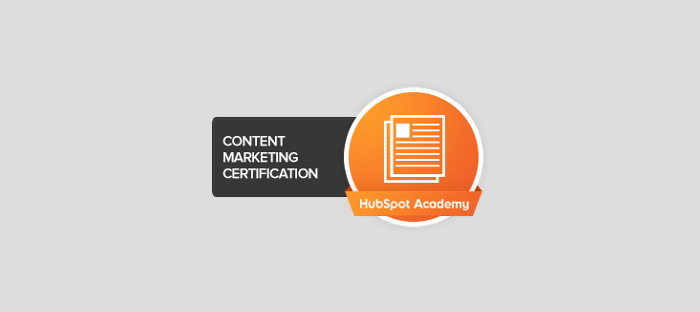Is HubSpot’s Inbound Marketing Certification Worth the Effort?

Marketing has evolved substantially in the last 10-plus years. Brian Halligan of HubSpot coined the term “inbound marketing” in 2005, and this approach has transformed the way companies market themselves and their services today.
To educate marketers, HubSpot offers an inbound marketing certification course, which it encourages all its clients to take. But do you need to be certified to be a successful inbound marketer?
As the newest addition to the Clariant Creative Agency team, I’m by no means an agency insider. As such, I’ve declared myself the ideal candidate to share my recent (November 2016) experience in obtaining my inbound marketing certification through HubSpot.
Do I think it’s reasonable—or beneficial, even—to spend the time and effort it takes to become certified? Read on.
About the inbound marketing certification course and exam
HubSpot aims this certification at marketers looking to learn digital marketing, particularly anyone marketing a business that needs to be found online. The coursework itself focuses heavily on lead generation and customer retention.
Related Content: What Is Inbound Marketing All About, Anyway
The inbound marketing course and exam are available from HubSpot at no charge, which is nice, although there’s certainly a time investment required. The entire program consists of:
- 12 classes, running about 5 hours total
- A thorough overview of the fundamentals of the inbound marketing methodology, including SEO, blogging, landing pages, lead nurturing and persona development
- Review materials, including optional sample quizzes after each class and a downloadable study guide
- One final exam, consisting of 60 questions
What makes Inbound Certification attractive?
HubSpot claims that inbound leads cost 61% less than traditional marketing campaigns. If that’s true, that fact alone is payoff enough for taking the program.
But more to the point, the actual content of the program is surprisingly well thought out.
Several aspects stood out to me, including:
- Classes are available as an iTunes podcast. One of my favorite things about this course, which has little to do with the value of the actual certification, is I could download it as an iTunes podcast. This made the class portable (as a mom of two who spends a lot of time in the car, this is huge) and made it harder for me to procrastinate. Also, it’s easy for me to get distracted when I’m watching something on my computer; there’s always that urge to check client emails, finish that last newsletter article, etc. But since I’m usually listening to the radio in the car anyway, why not make that time educational? I got through the audio faster than I would have if I were sitting at my desk, and if I needed a refresher I could always go back and watch a class on my desktop the "old fashioned" way.
- Classes encourage more targeted writing. As an experienced marketing writer, I understood how to write educational, unbiased content. What this course did help me do was fine-tune my writing to ensure I’m reaching the right audience. I’m now better prepared to incorporate relevant long-tail keywords to attract search engine traffic. And I was reminded that if I’m writing for the wrong person, or if I’m not writing for search engine optimization, my clients (or my company) may have a much harder time being found online.
- The test isn’t easy. Have extensive marketing experience? Already a great writer? Don’t assume this course is a piece of cake, and don’t count on personal experience getting you a passing grade here. The questions are tough – and rightfully so. You need to earn this certification.
- The program confirms that blogging is necessary. HubSpot reports that 43% of companies have acquired a customer through their blog. Blogging is a serious business-building strategy and requires a professional approach. By raising the profile of the need to blog to educate, rather than sell, HubSpot is helping to raise the quality of marketing across the internet. After all, your customers have questions or problems; let your content give them answers and solutions.
- Certification requires yearly recertification. Although it may seem like a hassle to take the recertification test every year, it’s really a good thing. The course keeps up with and includes emerging strategies, and the test reflects these current approaches and improves questions based on testers’ feedback.
In truth, there wasn’t a lot of information that was genuinely new to me. But the course provided an in-depth look of inbound marketing that I found truly valuable.
That said, the certification process wasn’t all a bed of roses.
Every rose (or course) has its thorns
Although most of the course was great, only a few things didn’t sit well with me.
- Do you need the in-detail persona? One of the tenets of inbound marketing is to create highly detailed buyer personas for each type of customer you wish to target. I’m not sure what I gain from all of this detail. Do you need to know and write to your target audience? Of course. Do you need to name her Sales Girl Sally and come up with a complete back story for her (including number of kids and hobbies) in order to write effectively? I’m not so sure. Knowing to whom you’re writing is no doubt an important thing. But I’m not sure the extensive persona development is essential to the process.
- The test isn’t easy. Although I listed the test’s difficulty as a positive earlier, some of the multiple choice questions felt awkward, didn’t always reflect what the classes covered, and occasionally seemed designed to trip you up. It sort of felt like you just needed to be a good test taker to pass the class – meaning, you just needed to understand what HubSpot felt was the right answer, rather than which answer truly made the most sense.
Is the Inbound Marketing Certification worth it?
Overall, I’d say, “Yes.” Listening to the course on the go. Learning more about creating an effective inbound strategy. Earning a certification that holds influence with clients. All are great perks that encouraged me to complete the certification.
While the course does help you focus your efforts, it’s not going to turn you into a marketing expert overnight. For me, it was a great way to round out my inbound exposure and understand what clients are looking for. I walked away with an improved picture of the ever-changing marketing game.
For less than the time invested in catching up with “House of Cards,” I learned the newest marketing strategies, earned my inbound marketing certification, and am more prepared than ever to effectively serve clients.
Not a bad way at all to spend a few hours.
Once you've obtained your Inbound Marketing Certification, your next step is to take a good, hard look at the marketing you've been doing to see if it stands up to the new quality standards you've just learned about.
Download our Content Audit Template for helpful guidance on cataloguing and analyzing your existing content to learn what's performing well, what's not, and what you can do to improve your content across the board!





